New Scientist covers the latest developments in science and technology that will impact your world. New Scientist employs and commissions the best writers in their fields from all over the world. Our editorial team provide cutting-edge news, award-winning features and reports, written in concise and clear language that puts discoveries and advances in the context of everyday life today and in the future.
Elsewhere on New Scientist
Who’s keeping track? • Reclaiming our digital privacy is more vital now than ever before
New Scientist
Dancing robots steal the show
Covid-19 antibodies give some immunity to SARS and MERS
Russia’s Luna 25 moon mission ends in catastrophic crash
Fires wiped out megafauna • Blazes largely due to humans killed off large mammals in California 13,000 years ago
Strange springy ice may explain how clouds make rain
IBM makes error-correction leap • Chips that connect seven qubits could make correcting errors on quantum computers easier
Consciousness traced to specific nerve cell clusters
3D-printed toilet is so slippery nothing can leave a mark
Wiping stem cells ‘clean’ could make them easier to produce
Neptune’s clouds have vanished • The sun’s activity may have stripped away the clouds that usually shroud Neptune
Negative emotions really do make time drag
Flies seem to enjoy going for a ride on a spinning carousel
Google AI predicts floods four days in advance in Africa
AI developers feel chip squeeze • The high-powered chips required for training the most advanced AIs are in short supply, creating winners and losers, reports Matthew Sparkes
Pig kidney transplant success • A kidney transplanted into a brain-dead man on life support was still functioning 32 days later
Multilingual AIs are better at responding to queries in English
Gene-edited yeast makes rice wine taste like bananas
Aliens on low-oxygen worlds may never discover fire
Ötzi the iceman may have been bald • Reanalysing the genome of Ötzi, who lived 5300 years ago and whose mummified body was found in the Alps, has changed the story of where his ancestors came from, finds Michael Marshall
Wildfires worsened by early plant growth
Lampshade can cut indoor air pollution
Blackbirds go to sleep earlier when they feel ill
Really brief
Hot dogs (and birds) • Global warming isn’t only affecting animals like polar bears. African wild dog populations may also collapse, warns Daniella Rabaiotti
No planet B • What’s in a name? Is it time to do away with species names that honour disreputable people past and present, or will that do more harm than good to biodiversity research, asks Graham Lawton
Sands of time
Your letters
Escape from a whale • A troubled young man is swallowed by a whale as he hunts for his father’s remains in a novel like nothing you have read before, says Neil McRobert
Mendel’s new place • Where does “father of genetics” Gregor Mendel fit in a post-genomic world? Simon Ings explores an excellent reset
New Scientist recommends
The games column • Finding your level Viewfinder is set in a world ravaged by climate change, where the researchers trying to help have fled. Can you retrieve their work and save the world? Success depends on cunning tricks with dimensions, says Jacob Aron
Nowhere to hide • The way your data is stored and shared online is changing – and you might be surprised to find how even mundane online activity can have a drastic influence on your life, finds Amanda Ruggeri
Wringing out the world • We have broken Earth’s water cycle. How did it come to this and is there anything we can do to fix it, asks Graham Lawton
How...

 Dec 14 2024
Dec 14 2024
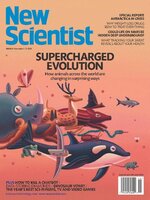 Dec 07 2024
Dec 07 2024
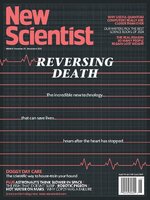 Nov 30 2024
Nov 30 2024
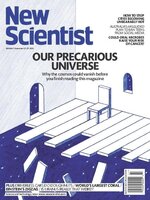 Nov 23 2024
Nov 23 2024
 Nov 16 2024
Nov 16 2024
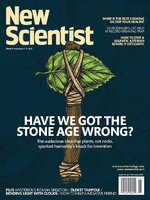 Nov 09 2024
Nov 09 2024
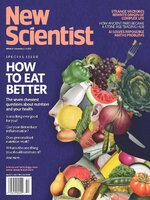 Nov 02 2024
Nov 02 2024
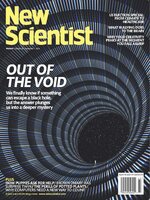 Oct 26 2024
Oct 26 2024
 Oct 19 2024
Oct 19 2024
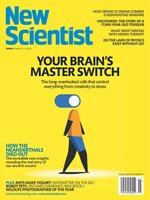 Oct 12 2024
Oct 12 2024
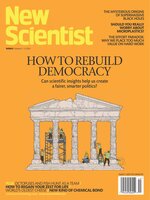 Oct 05 2024
Oct 05 2024
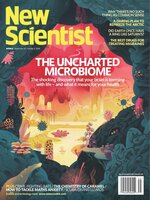 Sep 28 2024
Sep 28 2024
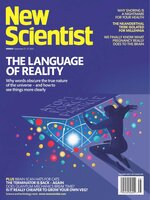 Sep 21 2024
Sep 21 2024
 Sep 14 2024
Sep 14 2024
 Sep 07 2024
Sep 07 2024
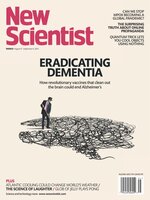 Aug 31 2024
Aug 31 2024
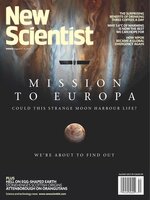 Aug 24 2024
Aug 24 2024
 Aug 17 2024
Aug 17 2024
 Aug 10 2024
Aug 10 2024
 Aug 03 2024
Aug 03 2024
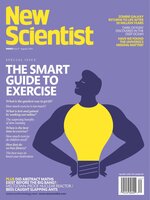 Jul 27 2024
Jul 27 2024
 Jul 20 2024
Jul 20 2024
 Jul 13 2024
Jul 13 2024
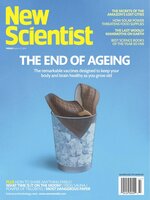 Jul 06 2024
Jul 06 2024
